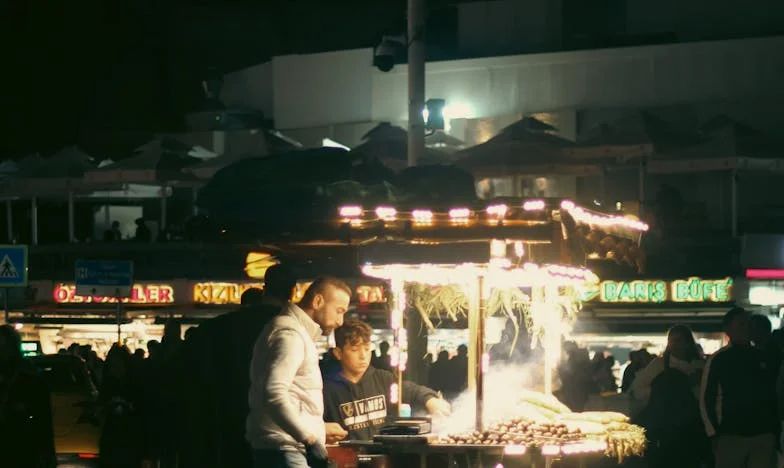The Night I Almost Walked Away: A Story About Family, Burnout, and Second Chances
“You said you’d be home by eight, Mom. It’s ten.” Jacob’s voice was sharp on the phone, disappointment seeping through the static. I gripped the steering wheel tighter, knuckles white. The highway lights flashed past, blurring into long yellow streaks. “I know, sweetie. I’m sorry. It was a crazy day at the salon—Mrs. Peterson came in late and…”
“Dad’s already eaten. I’m going to bed.” The line clicked dead.
I gulped, feeling the familiar sting of tears. Michael hadn’t picked up my last three texts. I pictured him at our kitchen table, reheating leftovers, his jaw clenched in that way he did when he was angry but trying not to show it. I pressed the gas a little harder, desperate just to get home, eat something, and collapse into bed. My head throbbed from the buzz of hairdryers, the endless chatter of clients, and the suffocating worry that somehow, I was failing everyone who mattered most.
I pulled into the driveway at 10:26 PM. The porch light was on—a small mercy. The living room was dim, except for the glow of Jacob’s nightlight drifting from the hallway. I dropped my purse on the floor and winced at the sound it made. Michael sat at the table, scrolling through his phone, plate scraped clean beside him.
“Hey.” My voice barely rose above a whisper.
He didn’t look up. “There’s some lasagna in the fridge.”
I heated it in silence, the microwave’s hum the only sound in the house. I wanted to scream, to throw something, to ask him why it always had to be like this—why my work was never enough, why his coldness cut deeper than any long day behind a salon chair. But instead, I ate, barely tasting the food.
After the first bite, Michael finally spoke. “Jacob had a rough day at school. He wanted you to help him with his science project.”
Guilt twisted my insides. “I’ll help him tomorrow.”
“He needed you today.”
The fork clattered against the plate. “I can’t be everywhere at once, Michael. I’m trying to—”
“To what? Keep the lights on? I know.” He ran a hand through his hair, frustration leaking into every word. “But you’re never here. Not really.”
My hands shook. “So quit your job and work weekends. Let me be the one who gets to eat dinner with our son for once.”
He stared at me, eyes tired. “You know I can’t. The insurance, the bills—”
“So what am I supposed to do?”
He finally met my gaze. “Something’s got to give, Amanda.”
I couldn’t sleep that night. I lay awake, listening to the soft whirr of Jacob’s fan down the hall. My mind spun through endless what-ifs and maybes. What if I quit the salon and we couldn’t pay the mortgage? What if I kept working nights and Jacob started to hate me? What if Michael and I just kept growing further apart until there was nothing left?
The next morning, I found Jacob hunched over his breakfast cereal, eyes glued to his phone. “Hey, bud,” I ventured, sliding into the chair next to him.
He didn’t look up. “You missed the volcano eruption. Dad helped, but it didn’t work.”
I reached for his hand, but he pulled away. My chest ached. “I’m sorry, Jake. I’ll help you fix it tonight, okay?”
He shrugged and grabbed his backpack. “Whatever.”
After he left, I sat there for a long time, staring at the empty cereal bowl, feeling utterly useless. That day at the salon, every snip of the scissors sounded like a countdown. By lunchtime, I could barely keep my hands steady. I texted Michael: “Can we talk tonight?”
He didn’t reply.
When I got home, Jacob was upstairs. I found Michael in the garage, tinkering with the old lawnmower. “We can’t keep going like this,” I said, voice trembling.
He wiped his hands on his jeans. “I know.”
“I need help, Michael. I need you to see that I’m drowning.”
He sighed, shoulders slumping. “I see it. But I don’t know what to do. I feel like I’m failing, too.”
For the first time in months, I let myself cry in front of him. He held me, and for a few minutes, the anger and resentment melted away. Later, we sat down and went through our finances. Michael offered to pick up more hours on weekends so I could cut back my late shifts. We agreed to one family night a week, no matter what.
It wasn’t perfect. Jacob still rolled his eyes at me, and Michael and I still fought sometimes. But there were small moments—helping Jacob build a new volcano, laughing over burnt popcorn during movie night, Michael surprising me with coffee after my shift—that reminded me what I was fighting for.
Some nights, when I’m driving home late, I still feel that ache—the fear that I’m not enough. But I’m learning to forgive myself, to ask for help, to let go of the idea that I have to do it all.
I wonder, does anyone else feel this way? Do you ever wonder if you’re giving enough to the people you love—or if, in trying to do everything, you’re losing yourself?
